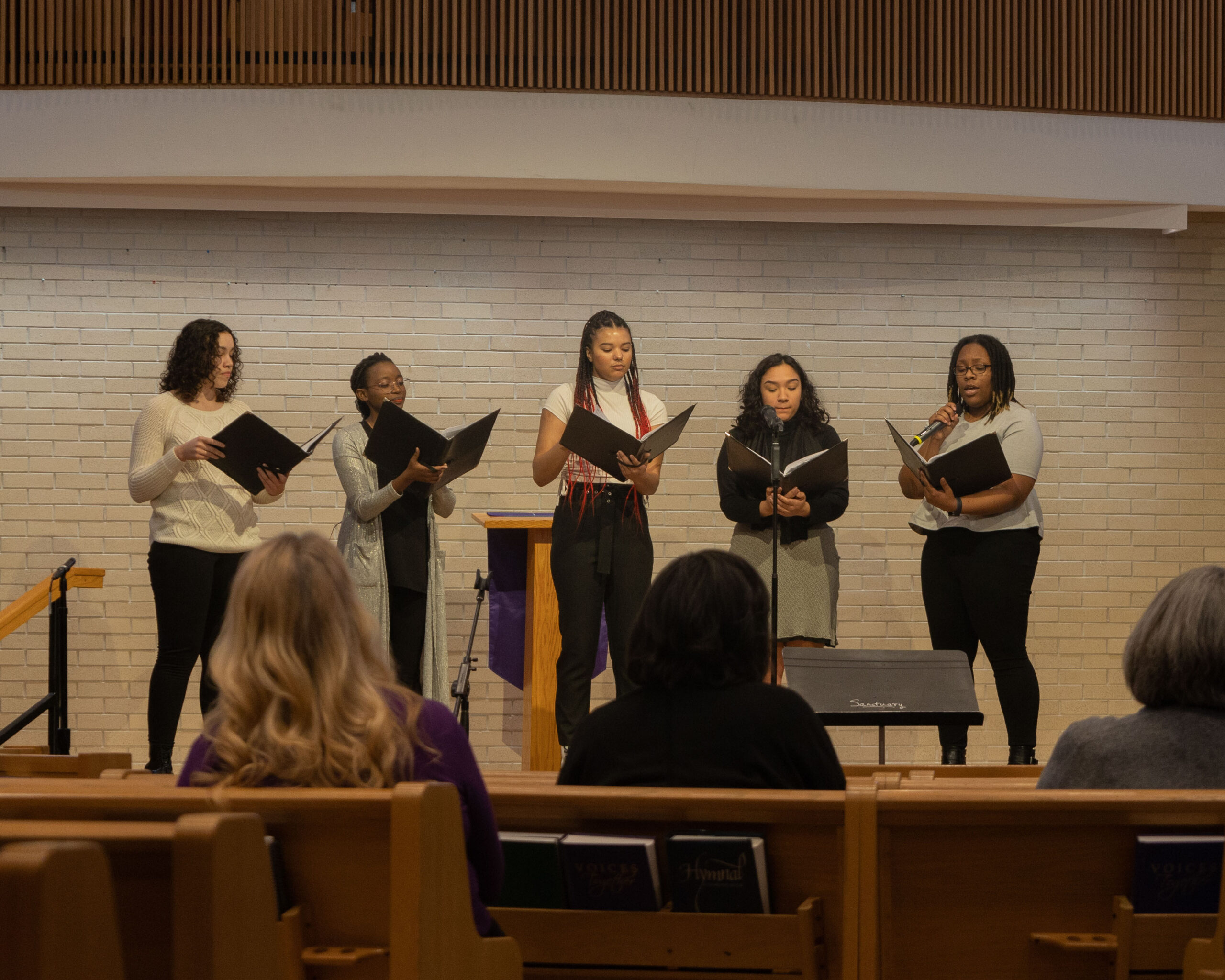Goshen College hosted its annual Martin Luther King Jr. Day convocation this past Monday at 10 a.m. titled “Hidden Treasure: Untold Stories.” The event’s keynote speaker was Dr. Daryl Heller. Heller serves as the director of the IU South Bend Civil Rights Heritage Center and an assistant professor of women’s and gender studies.
As students, staff, and community members filed into and nearly filled up College Mennonite Church, Roy Jennings blissfully played the piano.Jennings is the founder and artistic director of Arch Angel Productions, a not-for-profit performance company for the presentation of African-American concert music, with a special emphasis on the African-American Spiritual.
A keen listener could pick up recognizable melodies in his “Meditation on Angels” while walking in, and “Meditation on ‘Life Every Voice and Sing,” performed after a brief introduction by Roz Woll, assistant professor of music and friend of Jennings.
Next up were the Queen singers. They’re a five-person singing group of women of color at GC. Led by soloist Nakiyah Kilpatrick, senior American Sign Language (ASL) major, the group had locked in harmonies and its audience clapped along with a rousing rendition of “Stand Up,” from the 2019 film “Harriet.”
The impetus of this convocation was the birthday of Rev. Martin Luther King Jr., the figurehead of the Montgomery Bus Boycotts and revered voice of the Civil Rights movement of the 1950s and 1960s before his eventual assassination. King and other male figures in the movement, such as Malcolm X, W.E.B. Dubois and Thurgood Marshall, played a crucial role in the public as sparks of radical change. They’re also among the most recognized figures in the present day.
Heller’s presentation wished to not diminish their grandeur but didn’t focus on them; instead, it focused on hidden women of color whose contributions to the movement were vital.
“Patriarchy has ensured that those who stand out most prominently are men,” he said. “If we’re going to tell the full story of the civil rights movement, we have to include the roles and voices of the women who made the movement possible. I’d like to spend the next few minutes introducing you to some of these heroes.”
The stories of women such as Dr. Bernice Johnson Reagon, Ella Baker, Ida B. Wells, Fannie Lou Hamer, Septima Clark and Pauli Murray were told to an audience that, by show of hands, was largely unfamiliar with many of them.
These women each got their own stories, with their commonalities and connections coming into play as the presentation went on. Many of these women were members of the ACLU (American Civil Liberties Union), as well as connections made to Highlander Folk School.
The role that these organizations played in literacy, voting encouragement and simple discourse between Black and white men cannot be understated, and many of their key contributors were women.
The performance ended with Shout for Joy, a Goshen-based children’s choir. The chapel audience was dazzled by an energetic rendition of “Children Go Where I Send Thee,” complete with solos, extensive choreography, and energy.
King’s convocation paid homage primarily to strong, unrecognized black women throughout history.
Heller’s presentation didn’t fail to mention the tragedy and hatred these women experienced in the United States due to the color of their skin.
Shout for Joy gave us another reminder: a new day is upon us, and a new generation brims with the promise of a better future.



